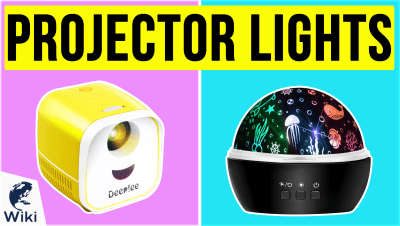5 Organizations Working To Understand & Address Health Concerns
Living with a medical condition that is poorly understood can be lonely and isolating, especially when there are few answers as to when or how you will get better. These organizations do important work not just in researching these conditions, but through spreading awareness and helping connect the afflicted so they feel less alone. This video was made with Ezvid Wikimaker.
5 Active Health Care Research Organizations
| Name | Location | Mission |
|---|---|---|
| U.S. Pain Foundation | Middletown, CT | Empower, educate, connect, and advocate for people living with conditions that cause chronic pain |
| Arthritis Research Canada | Richmond, BC | Strives to transform the lives of people living with arthritis through research and engagement |
| HER Foundation | Clackamas, OR | Provides support, groundbreaking research, advocacy, and education on HG to families around the world |
| Brain & Behavior Research Foundation | New York, NY | Dedicated to alleviating the suffering caused by mental illness by awarding grants that will lead to advances and breakthroughs in research |
| Washington Research Foundation | Seattle, WA | Funds grants for research addressing important needs in health care, life sciences, enabling technologies, and other areas |
An Overview of the Brain & Behavior Research Foundation
U.S. Mental Health Facts
- 1 in 5 U.S. adults experiences mental illness each year
- 50% of all lifetime mental illness begins by age 14, and 75% by age 24
- Suicide is the 2nd leading cause of death among people aged 10-34
- The average delay between onset of mental illness symptoms and treatment is 11 years
- People with depression have a 40% higher risk of developing cardiovascular and metabolic diseases than the general population
- 19.3% of U.S. adults with mental illness also experienced a substance use disorder in 2018
- The rate of unemployment is higher among U.S. adults who have mental illness (5.8%) compared to those who do not (3.6%)
- 41% of the people with mental disorders receive professional health care or other services
- Mental illness is associated with lower use of medical care, reduced adherence to treatment therapies for chronic diseases and higher risks of adverse health outcomes
- Up to 25% of primary care patients suffer from depression, but primary care doctors identify only 31% of these patients
- 4% of young adults reported forgoing mental health care in the past year, despite self-reported mental health needs
- Major depressive disorder is the leading cause of disability in the U.S. for ages 15-44
- Women are nearly twice as likely to suffer from major depression than men
- Four times as many men than women commit suicide
- Suicidal ideation among adults increased from 3.77% in 2012 to 4.19% in 2017
- The proportion of youth with private insurance that did not cover mental or emotional difficulties went from 4.6% in 2012 to 8.1% in 2017
- 8.4% of children aged 6 to 17 have been diagnosed with anxiety and/or depression
Hear from HG Survivors
In Depth
Millions of people around the world suffer from debilitating diseases, and several conditions, such as cancer, AIDS, and arthritis, are without a cure. As a response, many organizations have formed to create research opportunities, support networks, and education hubs to assist the ill. In no particular order, here are a few institutions focused on major health issues.
Our #1 entry is the U.S. Pain Foundation, which exists to empower, educate, connect, and advocate for people living with chronic conditions that cause pain. As a nonprofit, it is dedicated to serving those who suffer from ailments such as migraines and arthritis. The organization strives to help individuals find resources and inspiration.
The U.S. Pain Foundation's flagship program, the Invisible Project, creates chronic pain awareness through the stories and photographs of real people living with pain. Those suffering can find articles about self-care, ways to talk about illness with one's doctor, disability rights, and more. The foundation also has an ambassador network, which connects volunteers with ill individuals in need.
The U.S. Pain Foundation's flagship program, the Invisible Project, creates chronic pain awareness through the stories and photographs of real people living with pain.
Next up, at #2, we have Arthritis Research Canada, which is the largest clinical arthritis research center in North America. Its mission is to transform the lives of people living with degenerative joint disease through academic study and engagement. Led by world-renowned rheumatologist, Dr. John Esdaile, the organization's scientific team of over 100 is attempting to create a future where people with chronic pain are empowered to triumph over their disability.
Arthritis Research Canada's spokesperson is Spencer O'Brien, an Olympic athlete. Its research is focused on disease-management, osteoarthritis, and how the diagnosed can lead high-quality lives, despite their illness. Volunteers can join the Patient Advisory Board, to ensure the patient perspective is represented in all studies related to prevention, treatment, and self-management of arthritis.
For #3, we have the HER Foundation, a nonprofit that offers support, research, advocacy, and education on hyperemesis. Its mission is to find a cure for hyperemesis and its complications through advanced research, provide education and support to those seeking effective management strategies for this pregnancy complication, and dispense information on new resources and treatment options as they become available.
Its mission is to find a cure for hyperemesis and its complications through advanced research, provide education and support to those seeking effective management strategies for this pregnancy complication, and dispense information on new resources and treatment options as they become available.
The organization is active at medical conferences and on social media educating and increasing awareness about hyperemesis. Additionally, it collaborates with universities on research studies to identify the impact and causes of HG, determine optimum management strategies for impacted women, and drive change. It also works to provide health care professionals with clinical tools and resources they need to provide consistent, proactive, effective care.
The #4 entry is the Brain & Behavior Research Foundation. This organization is focused on improving the understanding, prevention, and treatment of psychiatric and mental illnesses. Since 1987, this nonprofit has awarded more than $408 million to fund more than 5,900 mental health research grants to thousands of scientists around the world.
The foundation's research focus is broad, addressing addiction, anxiety, attention-deficit hyperactivity disorder, autism, bipolar disorder, and more. In addition, it has a blog on its website which provides actionable advice for those who suffer from mental illnesses or have family and friends who do. Some topics include: drug dependence, self-love, and how to set mental health goals.
Some topics include: drug dependence, self-love, and how to set mental health goals.
Our last entry, #5, is the Washington Research Foundation, which funds grants for research addressing important needs in healthcare and other critical areas that will have positive outcomes in Washington state and beyond. It awards fellowships to graduate and undergraduate students as well as to faculty. In addition, it is a major contributor to the state university's CoMotion Innovation Fund.
The foundation supports up to 10 dedicated postdoctoral scientists each year at research institutions in Washington state. Fellows are to conduct work on their own original projects addressing unmet public needs, studying cancer, intestinal microbiota, and public health. Since 1993, the organization has funded over $106 million in total grants.
















